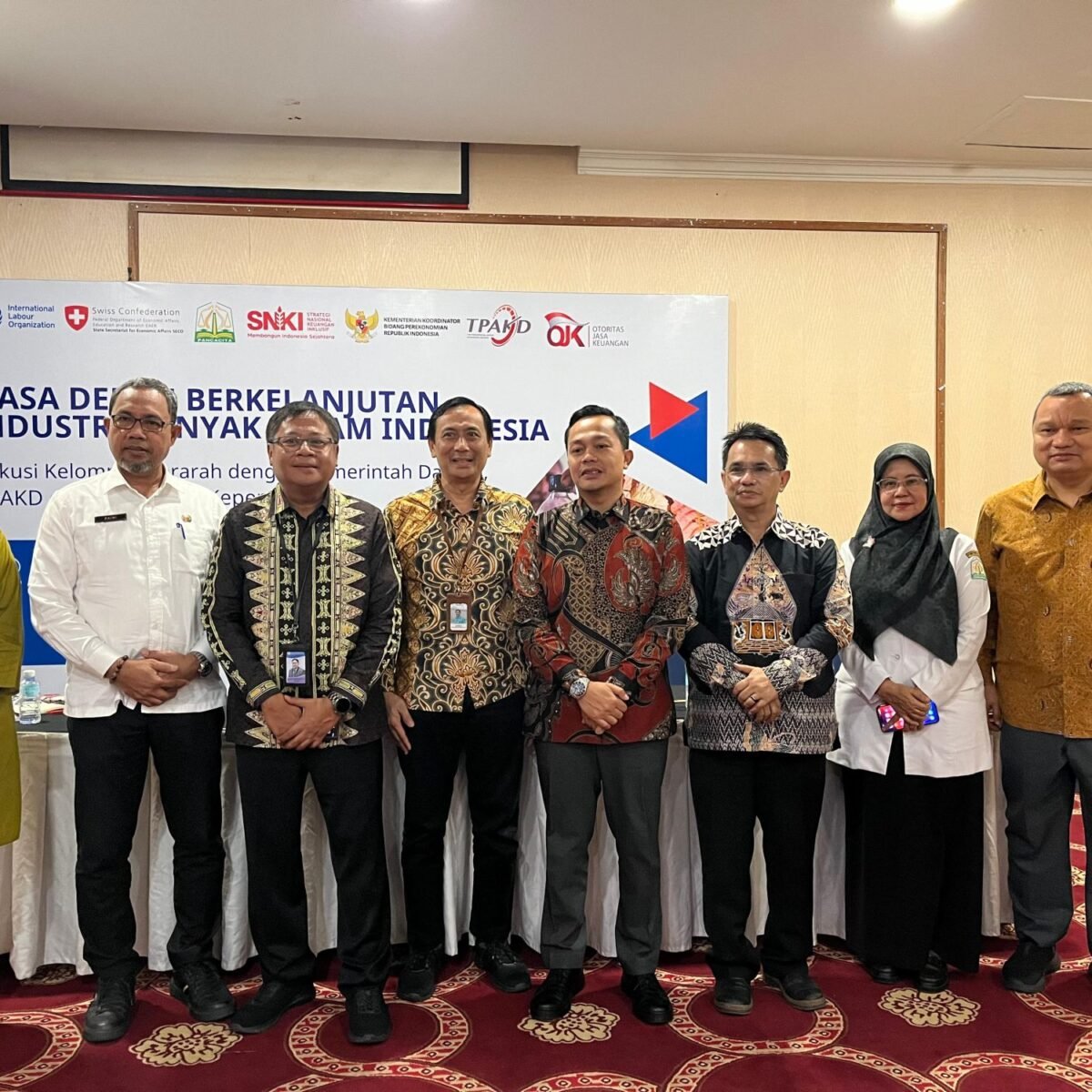BANDA ACEH (Press release) – The International Labour Organization (ILO), in collaboration with the Financial Services Authority (OJK) Office in Aceh, and the Coordinating Ministry for Economic Affairs as the Secretariat of the National Council for Financial Inclusion (DNKI), is accelerating efforts to enhance financial inclusion and digitize the patchouli oil sector in Aceh. ILO through the Promise II Impact Project, funded by the Swiss State Secretariat for Economic Affairs (SECO), has encouraged the development of a new value chain ecosystem in the Aceh Patchouli Oil sector and strengthened it with a digital Enterprise Resource Planning system. This initiative aligns with Indonesia’s National Strategy for Inclusive Finance (SNKI), as outlined in Presidential Decree 114 of 2020.

The Regional Financial Access Acceleration Team (TPAKD) Forum, held on 16/10 in Hermes Hotel Palace Aceh, served as a platform for stakeholders to raise awareness of the current challenges of the overall patchouli oil and discuss how financial institutions can support this high-value commodity through better access to financial products and services and to further promote the newly launched ERP system called MyNilam. The forum also facilitates a broader dialogue and sharing of experiences on how agriculture commodities such as patchouli could boost regional economic growth through a more inclusive financial ecosystem.
Friderica Widyasari Dewi, Chief Executive of Market Conduct Supervision, Financial Education, and Consumer Protection at the Financial Services Authority (OJK), highlighted the importance of expanding financial access in the region. “The essential oil industry, particularly patchouli, holds immense potential for Aceh’s economic development. By improving financial access, we are empowering local farmers and SMEs to reach new markets and enhance their livelihoods,” she stated in her keynote address.
Panel discussions at the forum featured key experts, including Djauhari Sitorus, ILO’s Project Manager for Promise II Impact. He shared insights on the program’s impact on digitalization in the patchouli sector, noting, “Through MyNilam, we are leveraging digital technology to create transparency, improve operational efficiency, and strengthen the value chain. This initiative supports smallholder farmers and helps integrate them into a more structured, sustainable ecosystem which result in sustainable financial access for patchouli farmers and the off takers.”
Erdiriyo, the Deputy Assistant for Financial Inclusion and Sharia Finance at the Coordinating Ministry of Economic Affairs added that “Good coordination amongst various stakeholders is essential to ensuring the desired financial inclusion outcomes and achieving our targets as outlined in the SNKI, which eventually is about improving the livelihood of the people.”
Syaiffulah from the Atsiri Research Center emphasized the role of research and innovation in supporting the sector’s growth. “Collaborating with research institutions allows us to drive innovation and ensure that SMEs in the patchouli sector are well-positioned to compete both locally and internationally,” he remarked.
Meanwhile, Feriyanto from Dewan Atsiri Indonesia (DAI) discussed the sector’s potential and challenges, stating, “Patchouli oil is one of Indonesia’s most valuable export commodities, with Aceh contributing over 70% of the country’s supply. However, to fully capitalize on this potential, we need to address financial barriers and ensure that farmers have access to credit and modern financial tools.”
Ir. Cut Huzaimah, MP, Head of the Aceh Provincial Agriculture and Plantation Office, echoed these sentiments, pointing out that the local government plays a vital role in supporting farmers.
The forum also provided an opportunity to identify key challenges facing the sector, including limited access to formal credit and the need for greater digital adoption. Participants discussed possible action plans for addressing these issues at both the regional and national levels. The goal is to develop a more inclusive financial ecosystem that supports smallholder farmers and increases the sector’s attractiveness to financial institutions.
The Promise II Impact Project, now in its second phase, aims to strengthen the capacity of financial service providers and SMEs in Indonesia’s productive sectors. Through digital transformation and value chain enhancement, the program is helping to create an enabling environment for inclusive economic growth and improved employment outcomes.
For more information, please contact:
Yanis Saputra | ILO National Project Officer for Promise II Impact | Email: yanis@ilo.org | Tel: +62 812 6990 092
Adelin Alexandra | ILO National Project Officer for Workers’ Rights in Rural Sector | Email: alexandra@ilo.org | Tel: +62 812 9329 3880




